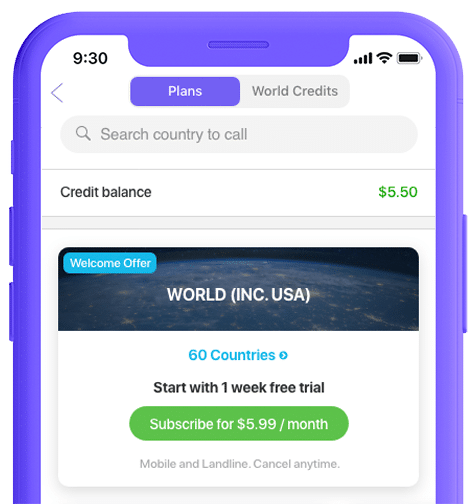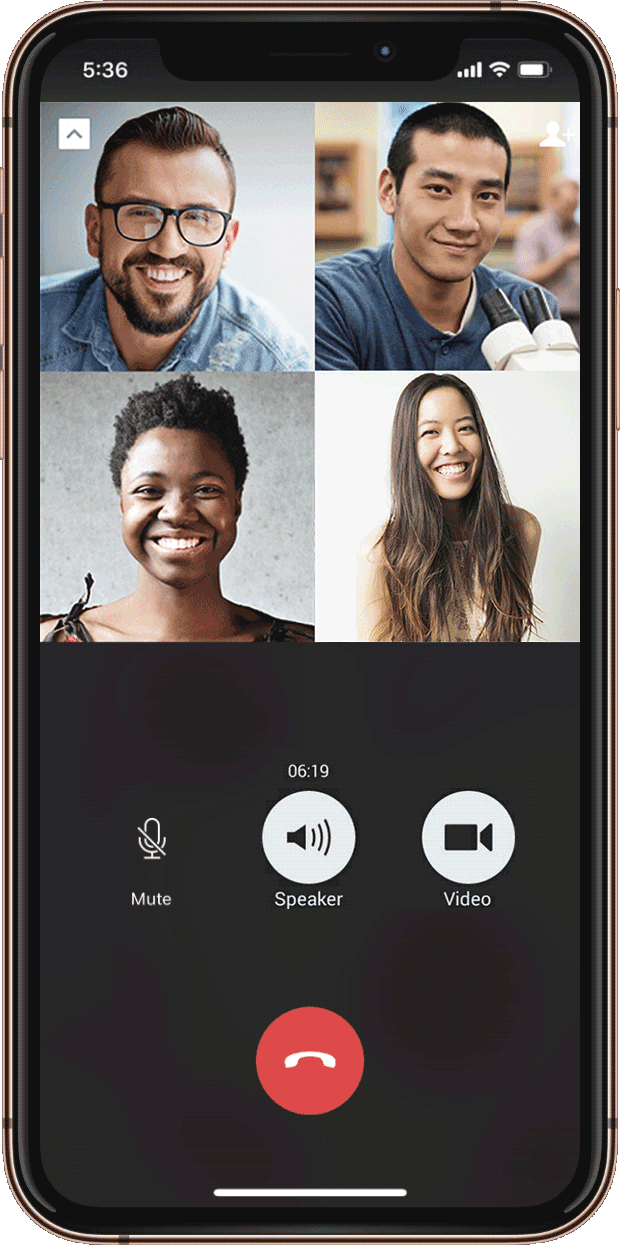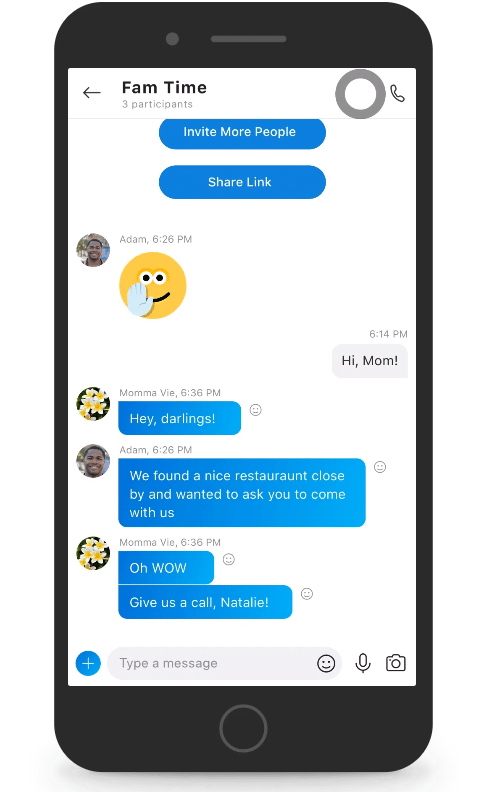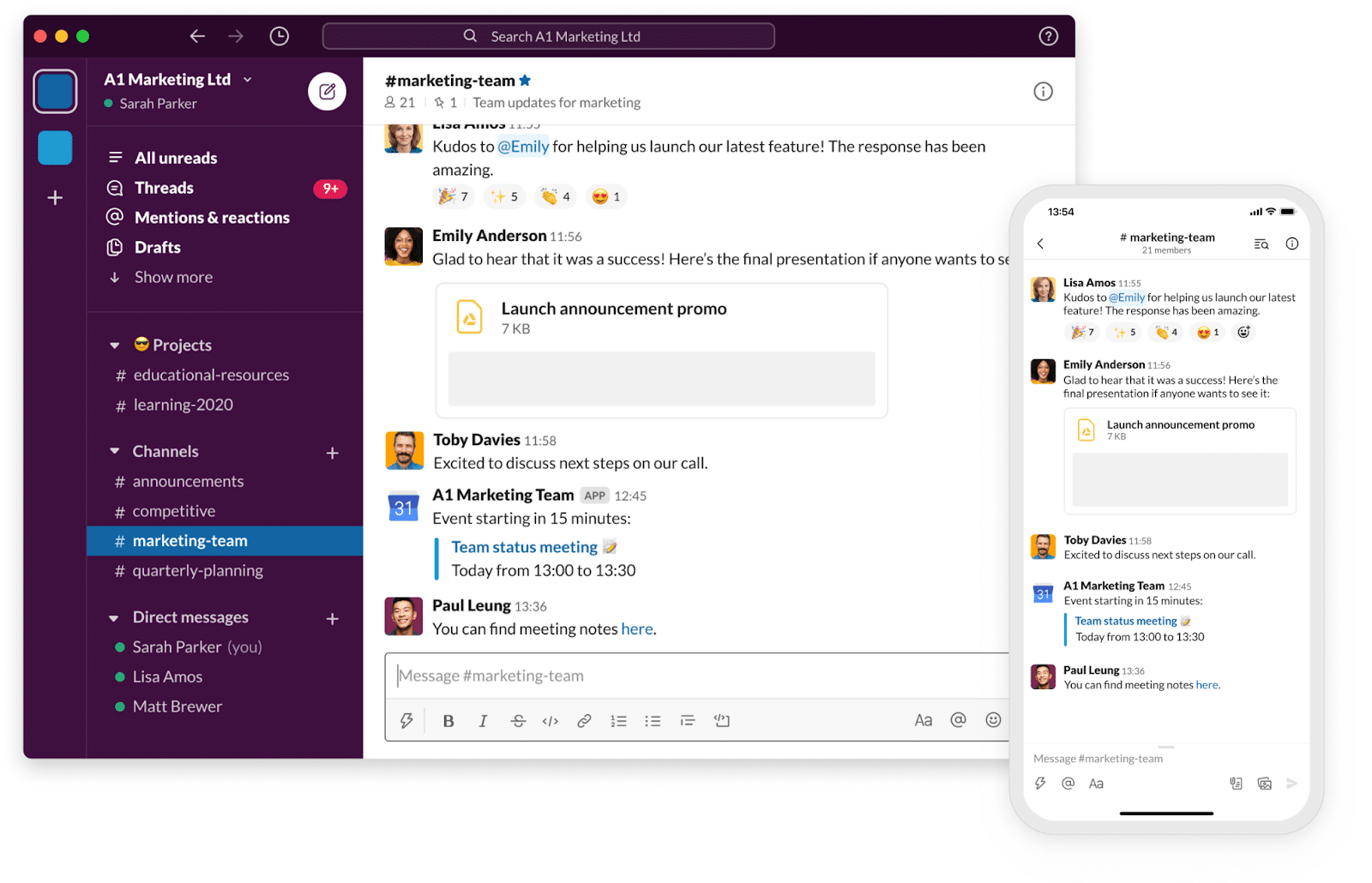Brief overview:
- What is a messaging app?
- Advantages of using a messaging app
- 4 essential features of a great messaging app
- A brief review of the best messaging apps
- 10 best messaging apps
- Choosing the best messaging app for your business
Messaging apps are an integral part of our lives. They’ve become yet more pervasive during global lockdowns, as we form communities online and keep up with friends and family over the internet.
While we’re accustomed to using messaging apps in our private lives, they’re taking off in workplaces too. Separated colleagues use them for catch-ups and meetings, and some businesses are even employing them as project management tools.
What is a messaging app?
A messaging app is a platform that allows the user to send and receive messages in real-time.
While traditional text messages require a mobile network, instant messaging apps function over the internet.
They’ve been around a while – think back to MSN and AIM. But nowadays, these apps are available across iPhone, Android, PCs, often don’t require a phone number, and support some standout features beyond simple emojis.
Advantages of using a messaging app
Because they work through internet connections, messaging apps can be accessed from anywhere a user has access to the net – and given the prevalence of Wi-Fi and 4G, that’s about anywhere.
More than just SMS, they can be used to maintain contact over long distances with friends or colleagues, sending life updates or just silly gifs to lighten the mood.
Chat apps can be useful for brands, offering a brilliant place to interact with customers informally and instantly, allowing reactive customer service.
Within businesses, they can boost productivity. No more useless meetings – send a quick message update!
Both Apple and Android phones boast great in-house messaging apps, but there are so many options that branch out from simple text messaging – and let you communicate from multiple devices, even PCs.

4 essential features of a great messaging app
It’s important to choose the right chat app, and some features distinguish the great from the average.
Seamless syncing & multiple devices
It’s common to use multiple devices, so a messaging app must sync seamlessly with the cloud and other apps you might be using. This allows users to switch devices easily without losing any information.
Chatbot integration
The rise of chatbots in chat apps enhances the functionality and, therefore, the customer experience. For example, bots can communicate directly with your customer base at all hours, accessing company information to answer queries.
Security
Naturally, there’s a focus on security – look for encrypted messaging apps so users can be sure their data is safe.
Other communication features
We also love apps that offer multiple modes of communication: it’s much easier to keep all communication on one platform, rather than downloading one for video calling, another for team messaging, file sharing, etc.
A brief review of the best messaging apps
| Messaging Apps | Supported Platforms | Pricing | Voice Chat | Video Chat | Group Chat | End-to-End Encryption | Share & Receive files | Popular in Country |
|---|---|---|---|---|---|---|---|---|
| RingCentral | Desktop, web, and mobile (Android and iOS) | Try the app for free before committing to a plan that suits your budget. | Yes | Yes | Yes | Yes – plus dynamic end-to-end encryption. | Yes | Supports communication all over the world – with offices in the USA, Canada, UK, Europe, Singapore, China, and the Philippines. |
| Facebook Messenger | Android, iOS, Windows 10 | Free other than data usage costs | Yes | Yes | Yes | Yes | Yes | Most popular in the USA, Canada and Australia, but used all over the world except in countries such as China, Iran, North Korea, and Russia Where Facebook has been banned. |
| Viber | Android, iOS, Windows, macOS, Linux | Free for simple voice or video messaging, then payable premium features for landline calling or calling non-viber users. | Yes | Yes | Yes | Yes | Yes | Most countries in eastern Europe including Serbia, Macedonia, Bosnia and Herzegovina. |
| Telegram | Android, iOS, Windows, macOS, Linux | Free, other than the cost of using data instead of WiFi | Yes | Yes | Yes | Yes | Yes | Spain, Brazil, India |
| Android, iOS, Windows, macOS | Free, except when using data when not connected to WiFi. | Yes | Yes | Yes | Yes | Yes | China and Mongolia | |
| Kik | iOS and Android | Free to download, and free to use if you’re connected to WiFi | No | Yes | Yes | No | Yes | Canada and the USA |
| Skype | Android, iOS, Windows, macOS, Linux | Free version available but with limitations. | Yes | Yes | Yes | Yes | Yes | USA, UK, Iceland, India, Moldova, Lithuania, Estonia, Latvia |
| Android, iOS, Windows, MacOS | Free, other than when using data instead of WiFi | Yes | Yes | Yes | Yes | Yes | All around the world except for a select few who banned it in some capacity: China, North Korea, Syria, Qatar and the UAE |
|
| GroupMe | Android, iOS, and Windows, | Free except if you’re using data instead of WiFi | No | No | Yes | No | Yes | Mostly used in the USA |
| Slack | macOS, Windows, Linux, Android, iOS, and the web. | Free version of Slack available but has some limitations in terms of features. | Yes | Yes | Yes | No | Yes | Used worldwide in more than 150 countries. Top cities to use Slack are New York, Tokyo, London and Berlin. |
-
What is an encrypted messaging app?
An encrypted messaging app is an instant messaging platform that uses end-to-end encryption to protect the privacy of your messages. End-to-end encryption is a protocol that means third parties can’t access or intercept your data whilst messages are in transit from one user device to another. For business users, it’s becoming increasingly important to use a messaging app with end-to-end encryption, or even better, dynamic encryption for an added layer of flexibility.
10 best messaging apps
1. RingCentral
OK, we might be biased – but RingCentral offers one of the best options out there for comprehensive business messaging. Even more than just text messaging, RingCentral provides a unified communication solution.
You can create dedicated threads for specific projects, allowing participants to track progress and keeping all relevant files and information in one place – no more scrambling to remember whether you talked about something over email, messenger, or text!
You can produce schedules and agendas in-thread, so everybody knows what they should be working on.
If you work with clients, you can invite them to join group chats with you too. This makes it incredibly easy to keep them updated on the project you’re working on.
You can choose to use the platform for internal communications or as a contact centre solution for external chats with customers – video chats host up to 200 participants, making it ideal for both purposes. And what’s more, you can access it from a smartphone (across iOS and Android), browser, or desktop app – so you can log on wherever you are.
Depending on which plan you choose, you have access to many valuable features – preventing the need to switch between multiple platforms. The most popular plan – Premium – offers the messaging feature with video calling, phone, integrations with your favourite CRM software, and a developer platform that lets you create custom applications to integrate communications yet further into your key business processes.
It also boasts automatic call recording, voicemail-to-text, and auto-attendant services to allow you to focus on providing excellent customer service.
Plus, the top-class security features – including fraud analytics and TLS and SRTP encryption between all endpoints – mean that your data is safe.
Team messaging comes as part of the free Essential plan, but the varying plans mean you can choose the options that work best for your company.

2. Facebook Messenger
Facebook’s popularity means that in-house Facebook Messenger is a solid choice for social media. You can message anybody in your network, so you can chat with acquaintances, despite not having one another’s phone number.
However, this comes with a downside: it’s a lot less slick when you try to message someone outside your network and downright impossible if someone doesn’t have Facebook.
And if they do have a profile? They might not want their work colleague or boss to have access to it.
Given growing privacy concerns – and a social media malaise in general – it’s not unusual to find that people have stepped away from Facebook.
Maybe it’s best to leave Facebook Messenger for socialising!
3. Viber
Available in 41 languages, Viber has earned its global reputation.
Its offering has remained similar since its launch in 2012: group chats, video and voice calls are offered for free, and, like Skype, Viber offers the ability to call people who don’t use the app for a fee.
Plus, there are secret chats: messages that self-destruct after some time.
When it comes to filesharing and workplace interaction, though, Viber has its downsides. Unlike RingCentral, you can’t backup files to Google Drive or Dropbox, leading to lost information and resources.
One downside is that, while free, you will notice ads popping up. This won’t be a big deal when using Viber socially, but it can be distracting when working – and off-putting to customers interacting with your business.

4. Telegram
Telegram prides itself on user privacy and, like RingCentral, is heavy on security features.
Featuring message encryption and messages that self-destruct, Telegram has become a gathering point for the security-conscious.
Consumers are becoming increasingly aware of how companies use their data, so this kind of privacy is crucial and sets the bar high for other messaging services.
However, its focus on privacy means that it’s hosted some undesirable broadcasts in the past. It might, therefore, not be the best idea to associate a business with such a controversial app.
5. WeChat
A prominent Chinese social app, WeChat boasts features that make connecting easy. It’s used by many as simply a messaging app and offers the ability to ‘meet’ those nearby to chat.
Security concerns: the University of Toronto ran an experiment that suggests the Chinese government is monitoring foreign content and metadata to censor material within China further.
Last year, the US government requested that US-based companies stop using the app altogether to fear unwittingly sharing confidential information. Consequently, if you have any US clients or contacts, they might be unwilling to use the app entirely.

6. Kik
If your marketing targets young people, Kik is not a bad way to go. According to the platform, the majority of their users are between 13-24.
Where Snapchat, with the same demo, limits itself to images and QR codes, Kik is a more comprehensive messaging app.
The vibrant stickers and emojis add some fun to the experience, while chatbots offer the ability to play games in group chats, deliver news, or even get fashion tips.
Because it’s designed for socialising, there isn’t a heavy focus on backing up messages or documents. Everything is stored on your device – so you’re one dropped phone away from losing useful information if you use it at work.
7. Skype
Despite having been around for years, Skype’s messaging features have been largely overlooked as they widely promote their video calls.
Nevertheless, it offers some good features: group chats, availability across devices, the ability to share files and pictures.
As a business app, it falls short: stickers and gifs don’t make up for the lack of project management and scheduling tools, leaving Skype to fall by the wayside for business.
That said, it’s free – which makes it a good option for those on a tight budget or just trying out messaging apps.

8. WhatsApp
Topping the list of most popular messaging apps globally, you’ll be hard-pressed to find anybody who hasn’t used WhatsApp before.
With group chat features and end-to-end encryption, it’s not hard to see why WhatsApp is such a frontrunner in the social messaging sphere.
However, privacy concerns over increased data sharing with parent company Facebook mean that several thousands of people are ditching WhatsApp.
Because of its popularity as a social app, there are inevitably active users within your company who use WhatsApp to keep in touch with friends and family. People are, understandably, often keen to keep their work and home lives separate, though – so using WhatsApp to communicate about work matters can feel intrusive.

9. GroupMe
A basic instant messaging app, GroupMe is a good option for being confused by bells and whistles. It even offers the ability to group chat with people who don’t have smartphones, relying on their phone’s SMS.
You can easily send gifs, stickers, and emojis alongside your text messages, and any pictures sent are saved in an in-chat gallery so that you can find them again.
It allows file sharing up to 50MB – which might not be enough if you need to send an in-depth presentation to colleagues, but plenty for cat pictures! RingCentral offers unlimited storage with its Ultimate plan and 1GB per user included in its Premium plan (with additional add-on storage purchasable).
10. Slack
Slack has seen success as a business tool. It’s intuitive, so anyone who’s not digitally savvy should be able to keep up, and it’s supported for both desktop and smartphone use.
Slack also supports integrations with project management apps – but doesn’t provide those features itself.
Its services are rather limited, though – it only offers calls of up to 15 participants (even on the most flexible plan).
And while you can save individual files to programs like Dropbox, there’s no automatic archiving option, unlike the one in RingCentral’s Premium and Ultimate plans.

Choosing the best messaging app for your business
Depending on your organisation, there are different things to consider when choosing the best messaging app for your business. We’ll explore some key considerations below.
Consider the budget
You might be happy with a basic app in exchange for a free messaging service, or you could opt for a program that offers various tiers of paid features. Either way, you’ll need to know how much budget is at your disposal.
Unified communication features
Which communication channels are your employees already using? To get more from your communications budget, you should employ a unified communications provider that allows you to access all the necessary features within one app – like video calls, messaging, and project management. It can even save you money if you’d otherwise have been paying for multiple apps and boost your efficiency.
Ease of use
Whichever app you choose, it must be easy to use for the people actually using it. Are they all digital natives, or might they be a little confused by complicated terms and unnecessary frills?
Accessible on multiple devices
An app supported on multiple devices means that your team will be able to join the conversation wherever they are.
Secure messaging
Security is a massive deal for businesses. You don’t want competitors to have access to your business’s plans and internal workings, and it’s important for consumers that the brands they interact with are secure and trustworthy. This is particularly crucial if you’re going to be engaging with customers within the messenger app.
Conclusion
Whether you aim to replace meetings or improve your customer service, messaging apps are here to stay.
Choosing the right one for your business means you’ll be able to take advantage of the features that work for you, whether that’s chatbots or project scheduling tools.
And if you need more information on RingCentral’s messaging features, get in touch!
Originally published Mar 23, 2023, updated Mar 28, 2023
RingCentral MVP
How the combination of message, video, and phone will reshape the future of work
